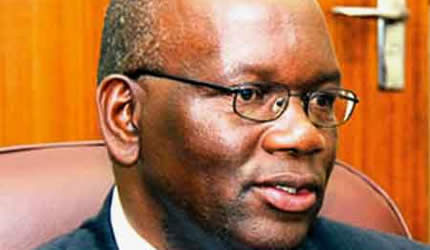A case for cultural re-awakening

Joram Nyathi Spectrum
TODAY the Spectrum focuses briefly on three matters: the solicitation of public views on the selection of a Chief Justice, the insult to our culture in the definition of a valid marriage and last week’s Supreme Court ruling which declared the beating of a child in the home and at school illegal, because it constitutes cruel, inhuman and degrading treatment. All of which underline how far we have drifted from who we are and how deeply the colonial experience has taken its toll in altering our worldview.
We have lost our values and sense of being.
Without reference to the whiteman’s culture, we are nothing.
All of which leads me to the conclusion that between a court of law, a marriage certificate and a cane, I would prioritise the cane.
And I am no sadist.
The cane, properly and appropriately applied, should reduce the number of bastards in our society and render the services of the police officer, the lawyer, the judge and chief justice, and the entire court hierarchy, superfluous. So help me God.
Please note that I am not a lawyer. I am making a layman’s observations as a Zimbabwean citizen.
Veritas is one of many local organisations opposed to the amendment of Section 180 of the Constitution to allow a President to appoint a Chief Justice.
Its post of March 2, 2017 titled “Chief Justice succession: The continuing saga”, was therefore consistent.
Given that many judges recused themselves in the Supreme Court appeal case against Justice Hungwe’s judgment, necessitating a recall of Justice Ziyambi from retirement, Veritas wondered whether the same judges would now sit on the Constitutional Court bench to hear the latest appeal by Zibani against Justice Ziyambi’s involvement, because of her age.
Should the judges recuse themselves again, Veritas opines: “Judges of the High Court will presumably have to be called upon to sit in the Constitutional Court, which will give us the curious spectacle of junior judges determining the constitutional validity of a decision made by their seniors.” (author’s emphasis)
Compare this to Justice Hungwe’s reasoning on fellow judges interviewing a would-be Chief Justice: “It occurs to me that where a lawful process leads to an absurd result in the sense that colleagues select each other for entitlement to public office, as argued by the applicant, it cannot be sanctioned on the ground that it is provided for in the law. Such an approach is irrational.”
Should a constitutional “absurdity” be allowed to persist purely because it’s too soon to amend a Constitution? That would be irrational. The only solid logic upon which Zibani lost his case was that he could not stop a constitutional process at the last minute merely on the basis of Government’s mooted intention to amend the Constitution.
Whatever the constitutional provision, I have reservations about the interview process to select a Chief Justice because I don’t believe a senior position such as that can ever find a neutral or independent officer.
The only valid criteria should be qualifications and experience to persuasively interpret the law, otherwise one runs the embarrassment of too frequent dissenting voices on every judgment.
An impression has been created that in supporting legislation to facilitate the land reform, Chief Justice Chidyausiku was not acting independently. Instead, he should have been a Gubbay and sided with white farmers to promote the rule of law. Yet both were appointees of the President!
This view is apparently contradicted by Gubbay himself in a lecture he delivered in London in 2009, years after he left the Chief Justice’s post, on the rule of law. Hear him: “Although there is a wide variety of jurisprudential thought on the complex concept of the rule of law, it is generally accepted that a society in which the rule of law prevails is one in which a climate of legality, observance of the law and an effective judiciary, are evident . . . It (rule of law) does not mean the protection of vested interests, or unfair exploitation in society.”
Lessons on rule of law: first, there is a variety of thought on the subject, which could include existing political or economic imperatives; second, the concept is complex; third, it should not be used to protect vested interests.
This is far from the narrow, selfish and self-serving interpretation of the rule of law to stop Zimbabweans from acquiring a key lever into the mainstream economy via access to land, a conception which places the individual above society. Gubbay’s broader interpretation goes beyond the letter of the law to encompass its spirit.
An appointed, competent Chief Justice, can execute such a task. It’s telling of how far we have lost our values of Ubuntu that we waste time and money debating how a Chief Justice should be selected when thousands of our people are marooned naked and hungry in flooded rivers.
What about the African woman and a marriage certificate! Thankfully, our columnist Goodwills Masimirembgwa is doing a brilliant job to restore and defend the dignity of our mothers and our culture by exposing the charade of colonialism’s “civilising” ethos.
Not only was the African woman destined to be a legal minor in perpetuity, if she did not go under the sham purity of a white veil, a ring on her finger and some officer certifying on a piece of paper that she was duly married, she was and remains unmarried even after the parties observe all the marriage rites of our culture.
The African marriage was degraded to a mere “union” while children born therefrom were and remain bastards.
Just because the parents were not locked in a wedding ring and blessed according to Western marriage rites!
The Legal Age of Majority Act of 1982 did not cure this colonial iniquity. And it doesn’t help matters that our “civilised” sisters view this trashing of our culture only in material gains from a divorce, instead of as an attack on their persons and traditions.
Hopefully our legislators are alive to imperative for a cultural reawakening and the respect and honour due to our African marital rites.
The imported Roman Dutch law is blind to African marriage; our culture cannot solemnise a union between a man and a woman as a marriage. They can only cohabit.
In the eyes of this law, those who don’t put on the white veil give birth only to bastards; that is to say almost 80 percent of our parents. And our learned, civilised libertarian sisters believe it is African culture which oppresses them.
Me thinks there “is a wide variety of jurisprudential thought” on what constitutes a marriage!
Finally, the whiteman’s civilising ethos has declared that primitive Africans and their backward culture can’t and don’t know how to bring up their own offspring. The bastards cannot be beaten at home nor at school. They have more rights than their bastard parents.
The only merry thing to come out of this High Court ruling last week is that a majority of parents are up against the bastards going unchastised for wayward behaviour, which we know can only be cured by long time nurturing through sanctions and reward.
You see, I don’t care how they bring up their children in Europe and America. I simply don’t like their behaviour when they come to Africa. We are not Europeans and we have a way to relate to one another and between children and elders. Hunhu or Ubuntu are values too superior to anything white civilisation can hope to bring to Africa.
Ubuntu gives every adult in the community authority over every minor and that authority is exercised with appropriate responsibility. It is all to ensure the child grows up to be a useful member of society. Not a bastard.
The trouble with imported human rights concepts is their over-extrapolation.
One parent overreacts and injures or kills a child over some minor offence, and that is blamed on culture. Yet we have more violence and killings among and between adults than that directed at children by adults, except maybe if it be of a sexual nature.
Another misconception is to treat disciplinary beating of a child as if it were a daily occurrence. Africans know very well that you don’t beat up a child everyday otherwise he/she becomes inured to pain — uyantunya/nhinhi.
In the majority of cases, the mere threat of beating puts the child in his/her place. And I have discovered that even my kids, who have never been beaten, respond promptly to the same threat. Now the whiteman’s civilising law tells us even threatening to beat up a child who misbehaves constitutes cruel, inhuman and degrading treatment.
Yes, we are free to follow these laws. My bet is that by this criminal neglect of our parental roles, the little Benny and Betty will soon be bringing home, before the new 18 years of sexual consent, their own fatherless brats. You can’t touch her. Alternatively, we are committing our doted on bastards to genuinely degrading experiences out there on the streets and in prisons.
I can’t think of any treatment more cruel, inhuman and degrading than a man rendered powerless by handcuffs.
Me thinks time and money spent soliciting people’s views on this vexed law will be money well spent. The exercise will save us the need for a Chief Justice when we bring up disciplined progeny.









Comments